Canada’s favourite drug may surprise you enough to start seeking out some caffeine alternatives.
71 percent of us begin our days with a cup (or more) of coffee, and just about everyone else relies on tea, caffeinated sodas or sickly-sweet energy drinks to wake up.
The idea of going without this caffeine boost might be enough to keep you in bed all day. But is caffeine actually good for you? Once you look at the facts, you may be ready to seek out healthy caffeine alternatives instead.
It’s important to note that not all facts behind caffeine are bad. In fact, a literature review from the British Medical Journal found that black coffee, in particular, can potentially help prevent strokes, certain cancers, Parkinson’s, dementia, and even kidney stones. There’s also evidence that coffee can boost your concentration and improve memory formation.
Fresh, high-quality, and organic coffee is the best you can consume for your health, but that doesn’t mean that you are always better off for drinking it. There are still plenty of reasons to consider seeking healthy caffeine alternatives instead.
Five Health Problems from Too Much Caffeine
There are plenty of problems attributed to caffeine consumption, including the following:
1. Strong Laxative Properties
Caffeine (especially coffee) stimulates peristalsis, which essentially means that the digestive tract speeds up digestion to make you go to the bathroom faster. Unfortunately, this process often causes you to expel food that is only partially digested, which makes it difficult for your body to absorb its nutrients fully. These unprocessed food pieces can also irritate and inflame your digestive tract.
2. Increases Stress and Tension
 Too much caffeine does more than wake you up; it promotes the release of cortisol and epinephrine, two stress hormones that will increase your heart rate, blood pressure, and tension levels. This leads to the classic feeling of jitteriness caused by too much caffeine, and it can compromise your ability to be productive. For this reason, fueling up on caffeine before a big day may produce the opposite effect of what you want.
Too much caffeine does more than wake you up; it promotes the release of cortisol and epinephrine, two stress hormones that will increase your heart rate, blood pressure, and tension levels. This leads to the classic feeling of jitteriness caused by too much caffeine, and it can compromise your ability to be productive. For this reason, fueling up on caffeine before a big day may produce the opposite effect of what you want.
3. Overproduction of Hydrochloric Acid
When you drink coffee on an empty stomach, the brew stimulates the production of hydrochloric acid (HCI), a substance typically reserved for digesting food. If your body produces too much HCI just for coffee, it might not manage to make enough to adequately process a full meal later. Protein-filled foods especially rely on HCI, and undigested protein in your gut can lead to a host of health problems like gas, bloating, irritable bowel syndrome, and even colon cancer.
4. Excessive Acidity
Caffeine and other acids found in coffee beans can irritate your stomach lining, and they can even trigger ulcers, Crohn’s disease, and other digestive difficulties if you drink too much. In fact, your morning coffee may be responsible for the abdominal spasms, cramps, and constipation problems you feel throughout the day. Likewise, the acid content of coffee and other caffeinated drinks like soda or energy drinks can trigger acid reflux and heartburn when the drink travels down your esophagus and burns its lining.
5. Negatively Affects Mineral Absorption
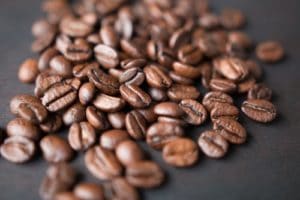 Fuelling up on caffeine each day can prevent you from fully absorbing the minerals in your diet, even if you take supplements. This is because coffee prevents your stomach from efficiently absorbing iron and it compromises the kidney’s ability to absorb calcium, magnesium, zinc, and other minerals. Magnesium deficiency is already a leading health problem around the world, and too much caffeine might be putting you at even higher risk of developing it.
Fuelling up on caffeine each day can prevent you from fully absorbing the minerals in your diet, even if you take supplements. This is because coffee prevents your stomach from efficiently absorbing iron and it compromises the kidney’s ability to absorb calcium, magnesium, zinc, and other minerals. Magnesium deficiency is already a leading health problem around the world, and too much caffeine might be putting you at even higher risk of developing it.
Best Healthy Caffeine Alternatives for Starting Your Day
Giving up caffeine completely may sound daunting, but the good news is that there are plenty of nourishing caffeine alternatives to experiment with instead.
Below are my favourite suggestions for improving your energy without suffering from the side effects of caffeine.
1. Green Vegetable Juice
A serving of green juice can provide you with most (if not all) of the USDA’s recommended fruit and vegetable intake. Green juice contains plenty of health promoting phytochemicals, antioxidants, vitamins, minerals, and natural sugars to give you an energy boost soon after you drink it. Many store-bought green juices contain as much as 36 percent of your daily potassium, 20 percent of your vitamin A, and up to four grams of protein.
There’s a broad spectrum of what’s considered “healthy green juice” today, so you need to look carefully to ensure your drink isn’t just simple sugar parading as a health tonic. For this reason, I recommend that you buy your juice from a reputable brand that doesn’t add sugar to the drink.
(Looking for a quality green juice supplier near you? This directory is a great place to start.)
An even better idea is to make your own! This allows you to completely customize the ingredients within your juice. By filling your cup with cruciferous vegetables like kale, broccoli, and bok choy, you can boost cell immunity and become less susceptible to sickness over time.
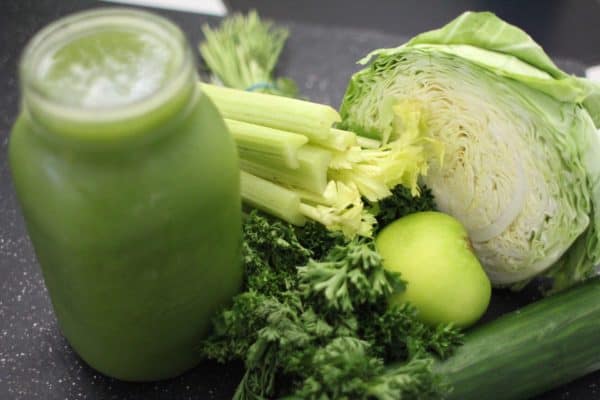
My wife and I juice daily for ourselves and our toddler, and we absolutely love starting our day off like this!
Keep in mind that juicing vegetables removes most of their fiber content, which causes you to digest their sugar content faster. This means that timing is everything when it comes to green vegetable juice. A cup in the morning or after a hard workout will replace your depleted glycogen stores without causing the excess sugar to be stored as fat. If you want to slow down the speed your body metabolizes the sugar, consider making a green smoothie instead, as it leaves the fiber within the drink. As an added benefit, you’ll feel fuller longer, limiting your impulse to snack on high-calorie foods later in the day.
2. Matcha Green Tea
Matcha tea is having a moment these days, and for a good reason! This jade-green drink is filled with health benefits that make it an excellent morning beverage. While matcha does contain caffeine, your body processes it entirely differently than the caffeine in coffee, which negates many of its downsides.
Unlike regular green tea, matcha is made by dissolving leaves in water and drinking the resulting brew, rather than momentarily infusing the leaves before tossing them out.
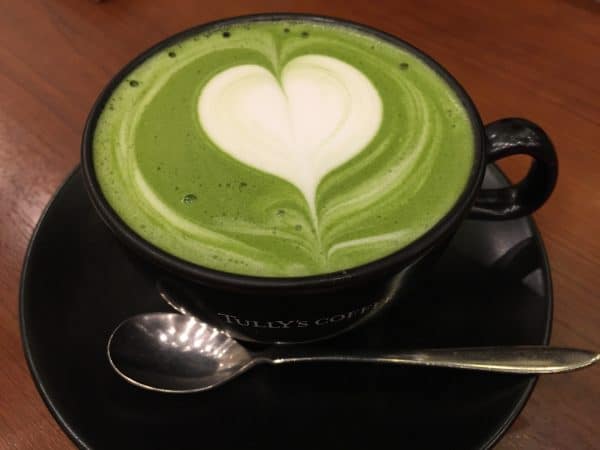
This means that the entire nutritional content of the leaves land in your drink. One serving of matcha is nutritionally equivalent to 10 cups of regular green tea, and it has an astounding 137 times more antioxidants per serving.
Studies have shown that consuming a cup of matcha tea can improve memory retention, reaction time, and attentiveness. Another study that specifically looked at an elderly population found the same results.
Matcha contains more caffeine than regular green tea, but just half as much as a cup of coffee. What sets matcha caffeine content apart is the compound L-theanine. This amino acid increases alpha wave activity in the brain and slows down how quickly your body metabolizes caffeine. This creates a slow release that induces relaxation, decreases stress levels, and heightens your alertness without causing a caffeine crash at the end.
If you want a way to jumpstart your day without suffering from a caffeine crash later, matcha tea might be the perfect solution.
3. Protein Smoothies
Fatigue in the early morning is often caused by hunger, which is why keeping your protein levels up with a protein shake may be even more effective than your morning coffee.
Protein shakes are a great way to promote muscle growth and restore your immune system by manufacturing hormones, enzymes, and nucleic acids. In fact, protein stitches together the components of every cell, organ, and tissue in your body, meaning that too little can lead to injury and slower recovery times after an illness.
Kicking the morning off with a protein shake provides your body with a big boost of easily-digestible protein, which gives you almost immediate energy to rely on. Best of all, a shake’s high protein content will keep you full for hours at a time, preventing you from turning to calorie-laden mid-morning snacks.
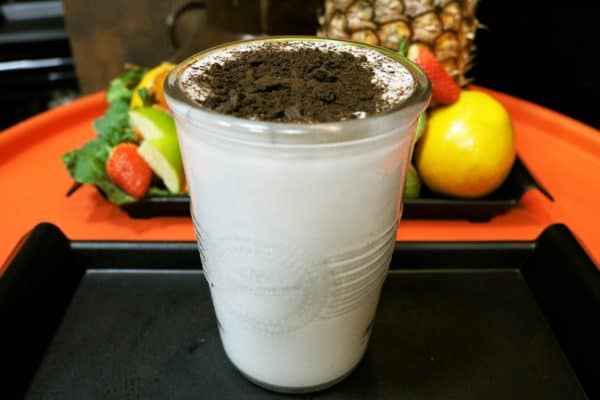
Which protein powder is best? Many people get excellent results from whey powder. Made from the byproduct of cheese production, whey is a source of complete protein, meaning that it contains all the essential and nonessential amino acids you need for muscle formation. Add a few scoops of whey powder to your morning smoothie, and you’ll start your day strong even without the caffeine hit.
4. Water
Your body is mostly made of water, and upsetting this natural balance will lead to problems. Peeing, sweating, and even breathing causes you to continuously lose water throughout the day, which is why keeping a water bottle on hand is a smart idea for your health.
In fact, a generous dose of water in the morning might do as much to boost your alertness as your standard cup of coffee. Most people get dehydrated overnight, so refreshing your system with at least 16 ounces of water first thing will do wonders to refresh you.
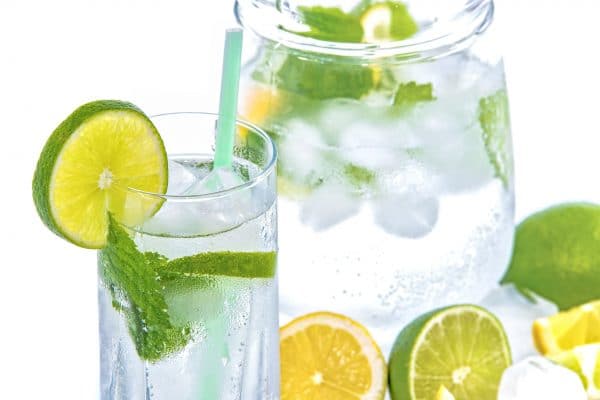
Starting the day with a big glass of water can also prevent you from taking in too many calories at breakfast, as dehydration is often confused for hunger.
The human brain is 85 percent water, meaning that even subtle changes in your hydration level can negatively affect its functioning.
Studies have shown that mild dehydration (either through exercise or heat) can adversely affect brain function, and a similar study showed that a fluid loss of just 1.36% after exercise could result in impaired concentration, worse moods, and a higher frequency for headaches.
While a one percent loss of body weight is quite significant, it’s important to keep in mind that dehydration will affect how you feel on a regular basis. If sipping on plain water isn’t exciting for you, consider infusing your drink with fresh fruits and herbs. You’ll get a boost of flavour and plenty of vitamins and minerals in the process.
Better Health at The Dempster Clinic- Center for Functional Medicine
If you are ready to explore more caffeine-free ways to boost your energy levels, please make an appointment at The Dempster Clinic- Center for Functional Medicine. I will work with you to determine what your health goals are and help you discover the best ways to reach them.
I am pleased to offer a Complimentary 15-minute Discovery Session for all first-time patients. This session can take place over the phone or in person at the clinic. It is an opportunity for you to better understand what services I provide and how they can be of benefit to you.
Please consider scheduling an appointment today! Your best health awaits.
Dr. John Dempster
The Dempster Clinic – Center for Functional Medicine


